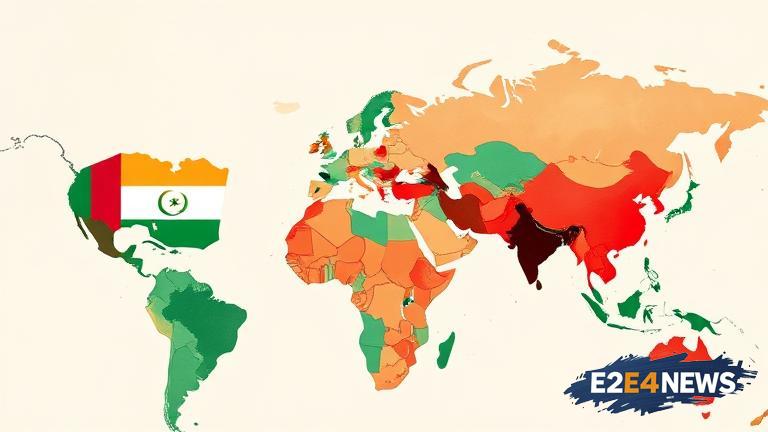The Middle East has been witnessing a significant surge in its economic influence, with several countries in the region emerging as key players in international trade. This shift is largely driven by strategic investments, diplomatic efforts, and a favorable business environment. The region’s unique geographical location, connecting Europe, Asia, and Africa, makes it an ideal hub for trade and commerce. Countries such as the UAE, Saudi Arabia, and Qatar have been at the forefront of this economic transformation, with major investments in infrastructure, logistics, and tourism. The UAE, in particular, has established itself as a major trade hub, with Dubai’s Jebel Ali Port being one of the busiest ports in the world. Saudi Arabia, on the other hand, has been focusing on diversifying its economy, with a strong emphasis on non-oil sectors such as manufacturing, tourism, and renewable energy. Qatar has also been making significant strides in the economic sphere, with major investments in infrastructure, education, and healthcare. The region’s economic growth has also been driven by a series of high-profile diplomatic efforts, including the Abraham Accords, which have helped to strengthen ties with other countries and promote trade and investment. The Middle East’s emergence as a key player in international trade has also been driven by its growing importance as a hub for global supply chains. The region’s strategic location and world-class infrastructure make it an ideal location for companies looking to establish a presence in the region. The growth of e-commerce in the region has also been a major driver of economic growth, with online sales expected to reach $50 billion by 2025. The Middle East has also been at the forefront of innovation, with several countries in the region investing heavily in emerging technologies such as artificial intelligence, blockchain, and the Internet of Things. The region’s favorable business environment, with low taxes and minimal bureaucracy, has also made it an attractive destination for foreign investors. However, the region still faces several challenges, including a lack of diversification, a reliance on oil exports, and a need for greater investment in human capital. Despite these challenges, the Middle East is well-positioned to continue its emergence as a key player in international trade, driven by its strategic location, favorable business environment, and growing importance as a hub for global supply chains. The region’s economic growth is expected to have a positive impact on the global economy, with the IMF predicting that the Middle East will be one of the fastest-growing regions in the world over the next five years. The growth of the Middle East’s economy is also expected to have a positive impact on the region’s population, with rising living standards and increased economic opportunities. However, the region must also address the challenges posed by climate change, with several countries in the region vulnerable to rising temperatures and more frequent natural disasters. The Middle East’s emergence as a key player in international trade is a significant development, with major implications for the global economy. As the region continues to grow and develop, it is likely to play an increasingly important role in shaping the global economic landscape. The region’s unique cultural and historical heritage, combined with its modern infrastructure and favorable business environment, make it an attractive destination for tourists, investors, and businesses. The Middle East’s economic growth is also expected to have a positive impact on the region’s relations with other countries, with increased trade and investment helping to strengthen ties and promote greater cooperation. Overall, the Middle East’s emergence as a key player in international trade is a significant development, with major implications for the global economy and the region’s population.





